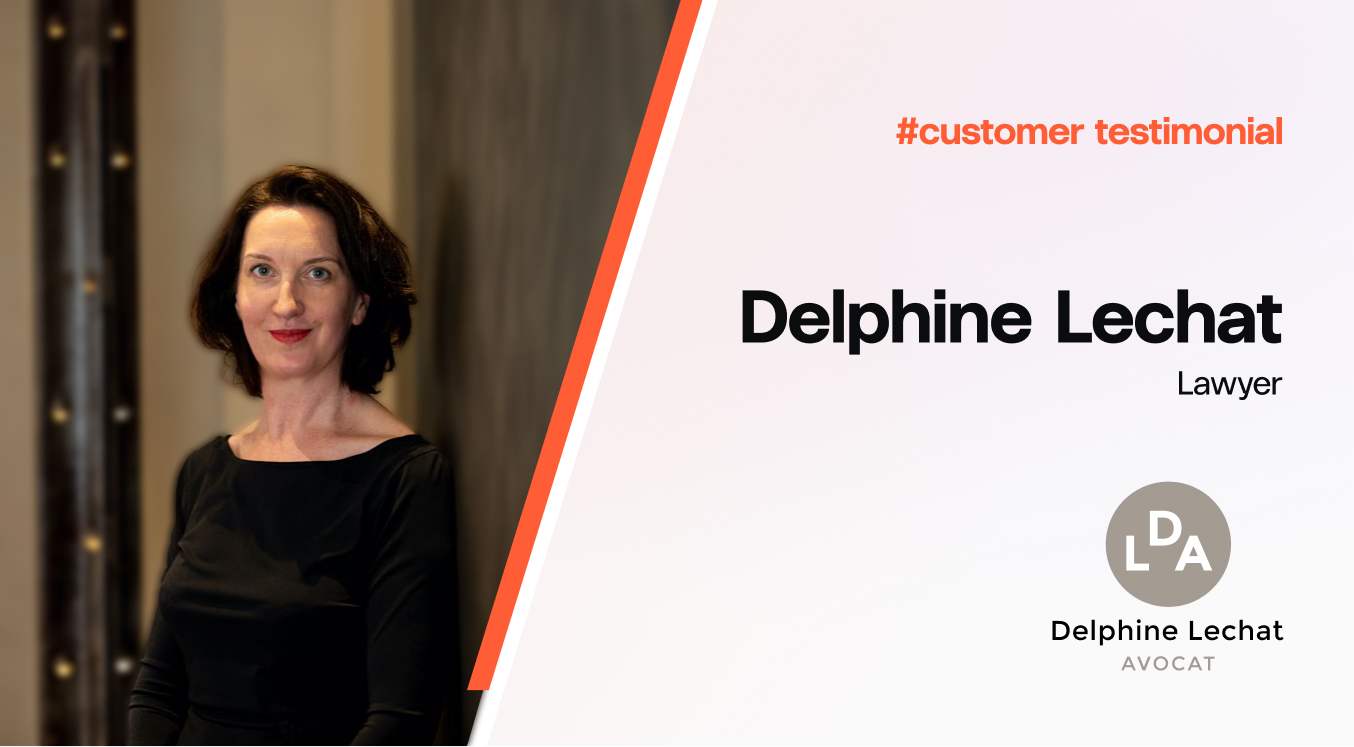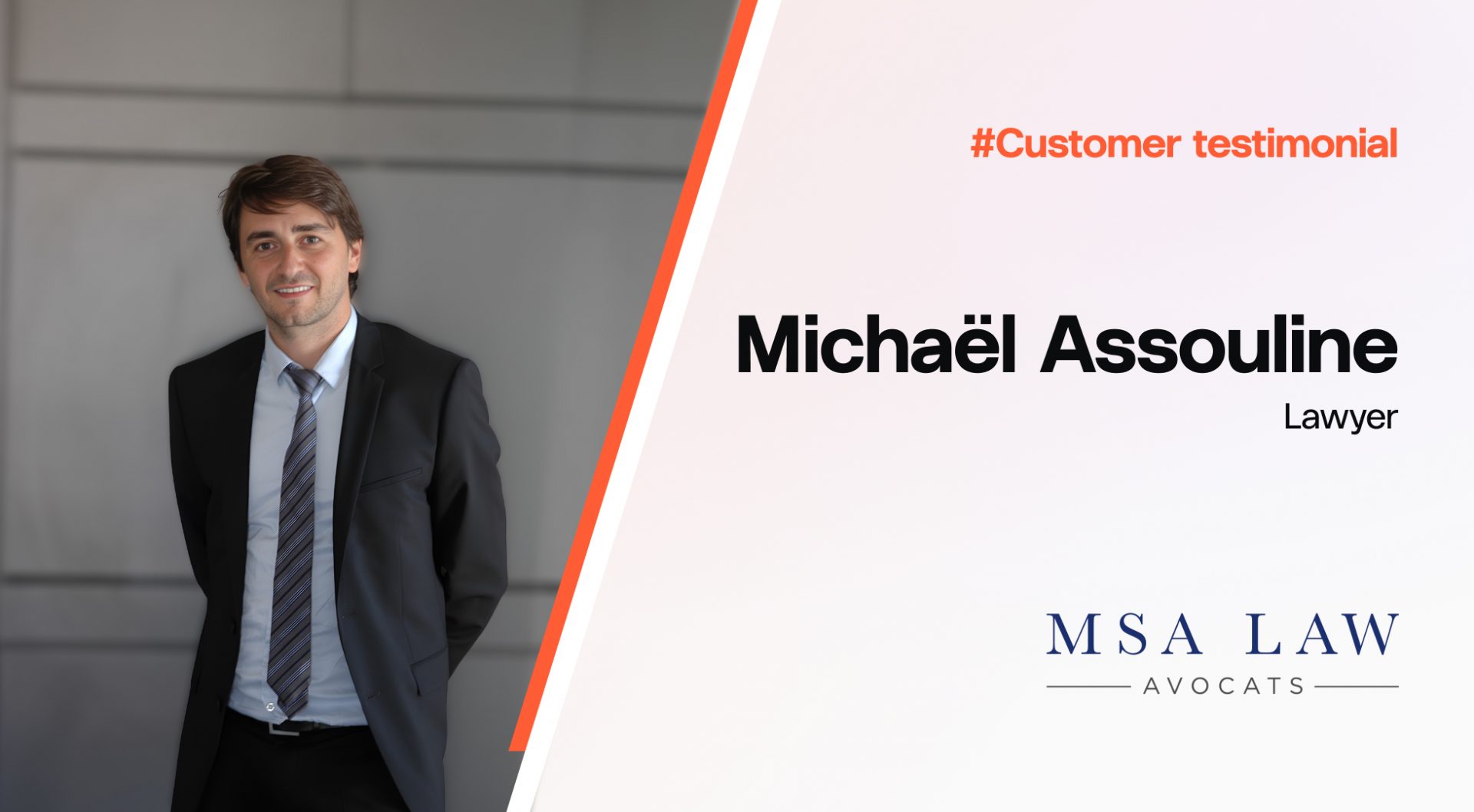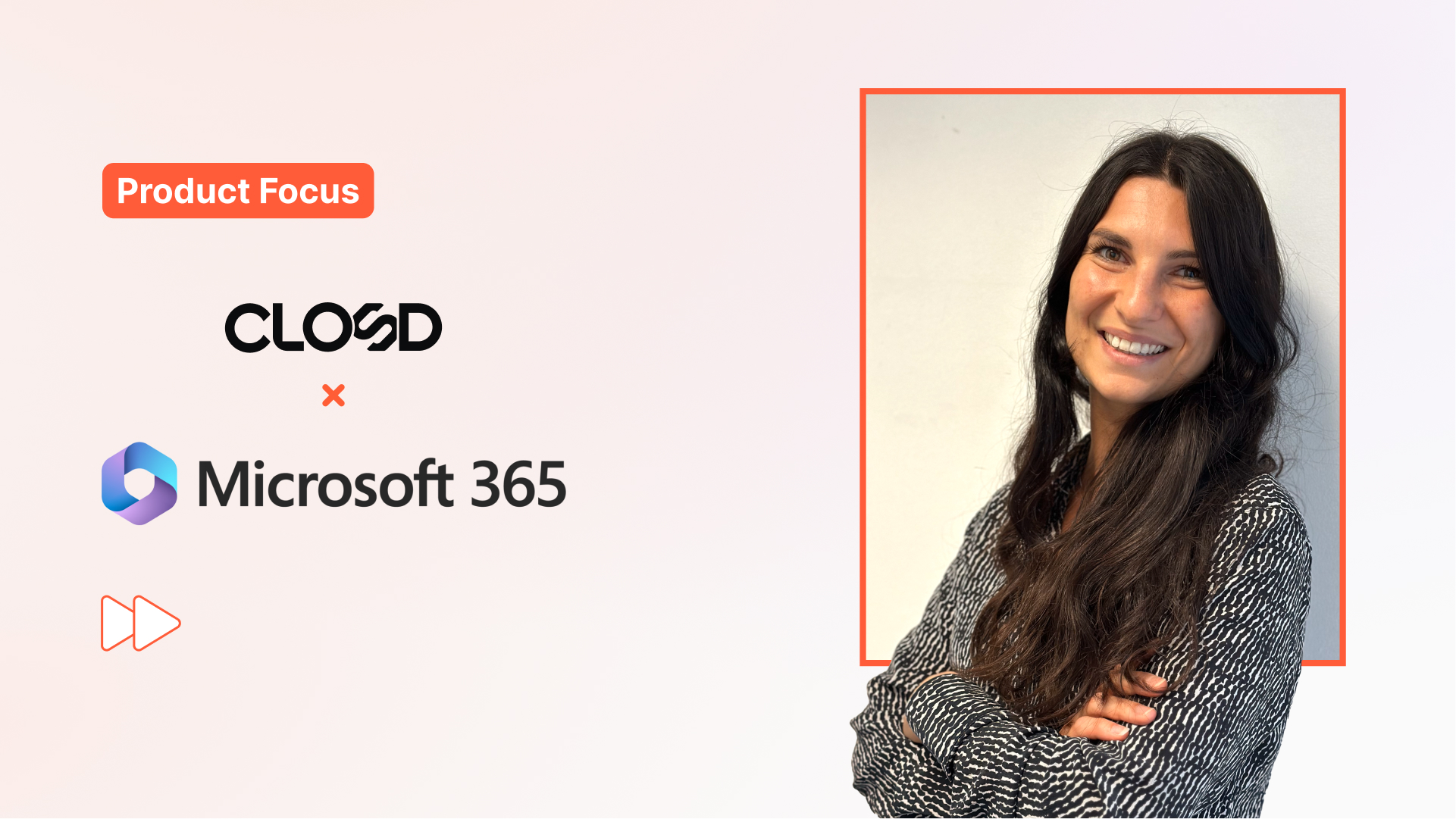Margaux Rouen has been a member of the Paris Bar since 2017. In 2018, she joined Stance Avocats as an associate, a business law firm specializing in equity financing.
After 3 years using the solution, she agreed to tell us about the benefits of Closd: organization of closings, electronic signature, improved communication… Discover her testimonial!
Closd: Could you please introduce us to Stance?
Margaux Rouen: I work as an associate at Stance Avocats, a business law firm specializing in mergers & acquisitions and private equity. The team is divided into 2 complementary teams: an M&A/private equity team, of which I am a member, and a tax law team, specialized in structuring transactions, as well as tax litigation.
We are lucky enough to work with a wide range of clients, including French and international companies of all sizes, from start-ups to SMEs, large groups, etc. We also work with investment funds and business owners, who have much more targeted projects.
We assist our customers and defend their interests in their search for financing and private equity fund-raising projects. We also advise on M&A transactions, external growth, and all internal and external restructuring operations. Of course, we also provide legal support for their day-to-day operations.
You’ve been using Closd for 3 years now. Why did you choose this solution?
In fact, I was the person behind the choice of Closd when the platform was presented to us in 2020. It was mainly the pandemic that pushed us to digitize our business and our signing process. We were already using DocuSign at the time, because we could no longer afford to meet our customers face-to-face at the office. When the software was presented to us, it made us want to test the platform, and that’s how we were really convinced, and so were our customers.
You can really tell the platform was created by lawyers for lawyers. It’s easy to use, fairly intuitive, and above all, it’s a real time-saver.
As a lawyer, I’m sure we all remember the night before a closing or signing: thousands of documents to print and organize, signing orders to prepare, etc. Not to mention people waiting in lines to sign on the big day! This saves us a considerable amount of time, and marks a real evolution in our practices.
Could you describe the operations you carry out thanks to the platform? What are your favorite features?
Today, we use Closd for about 90% of our deals. We use it as a communication tool with our colleagues and customers during the preparation of the closing, to share documents or gather appendices, and all this is quite easy to do in the Documents section. Not only does this give project participants access to the documents posted online, but it also enables them to have the same level of information, track the progress of appendix collection, and avoid the need for email loops to follow-up on the project.
The second main use is as a signature tool. There isn’t a single file where we don’t make a signature, so we use it on a daily basis to get a simple deed signed, or even internally to get letters signed by partners. Of course, we also use it to organize our closings, which are much heavier in terms of process.
The platform’s Signing Checklist tool really allows you to do a lot of things: direct signing, but also to anticipate time-consuming tasks, such as the day before closing. The platform enables you to upload documents that are finalized as you go along, instead of waiting until 6 p.m. the day before and having to work until midnight. The signature session allows you to create sub-categories, and to organize a signing order and steps. It can also be used to block signatures, so that certain documents can be validated by colleagues who want to be sure that the latest version is the right one.
This allows us to be more agile, especially when it comes to the signature scheduling tool. For example, you can load documents to go out for signature the next day, and go to bed knowing that as soon as customers wake up the next morning, they’ll be able to start signing. This is extremely practical, and means that transfers can be initiated and funds released much sooner, which is much appreciated.
How would you assess your experience with Closd? What are the main strengths of the platform?
Overall, our customers are very satisfied; those who use the software and are now part of the process simply can’t do without it – they refuse to come to the office to sign! If they do come, all they want is to share a friendly moment, but documents are still almost always signed electronically.
Any reluctance on the part of certain customers, particularly those who found it a little more uncomfortable to use a platform, is generally resolved fairly easily. On the whole, the platform solves all IT problems, and chat and customer support are generally readily available. Once the customer has shown his or her ID and created an account, there are no further difficulties. There are a lot of features that allow us to follow-up on the customer, and assist him or her when he or she is in the process of signing.
I don’t think there will be any turning back on electronic signatures, either for us or for our customers. We’re very happy with it, and our customers are very happy to use it. It’s not uncommon for us to register a customer who’s an entrepreneur or business owner, and who’s already on the platform before we even add him or her to the project. So there’s a practical side for customers, who can find several projects from several sources on the same platform.
There are still plenty of features that we are interested in, and which we haven’t yet tested: the automatic tag placement, which I think should be a significant time-saver, the closing calendar, the data room solution or the archiving feature. Many improvements have been added since the beginning, so I think we’re at the beginning of digitization and what we can do in terms of legal operations. This allows us to concentrate on the added value that our lawyers provide, and not waste time on tasks that are certainly necessary, but a little time-consuming and not very interesting.
Any final word?
It’s not very difficult to convince customers, because since the pandemic, everyone has become more mobile, and wants to use the electronic signature, so that they can sign from anywhere. This solves a lot of scheduling problems. I’ve never had any difficulty in suggesting electronic signatures to my customers. I just have to guide those who are a little less tech-savvy, but it’s a very simple platform all the same.
I think the transition will be easy, because the platform is really intuitive. You only need one or two test signatures to know how to use it: that’s how I managed to show the whole firm, including the most reluctant, how to place their signature tags, so I think everyone is capable of doing it.
Electronic signatures are now accepted by courts, by tax authorities and by lawyers in other countries. With the digitization of the legal industry, we’ve really taken a step towards digitalization.
Thanks to Mrs Rouen for her testimony.
If you want to learn more about Closd, schedule a demo now!




